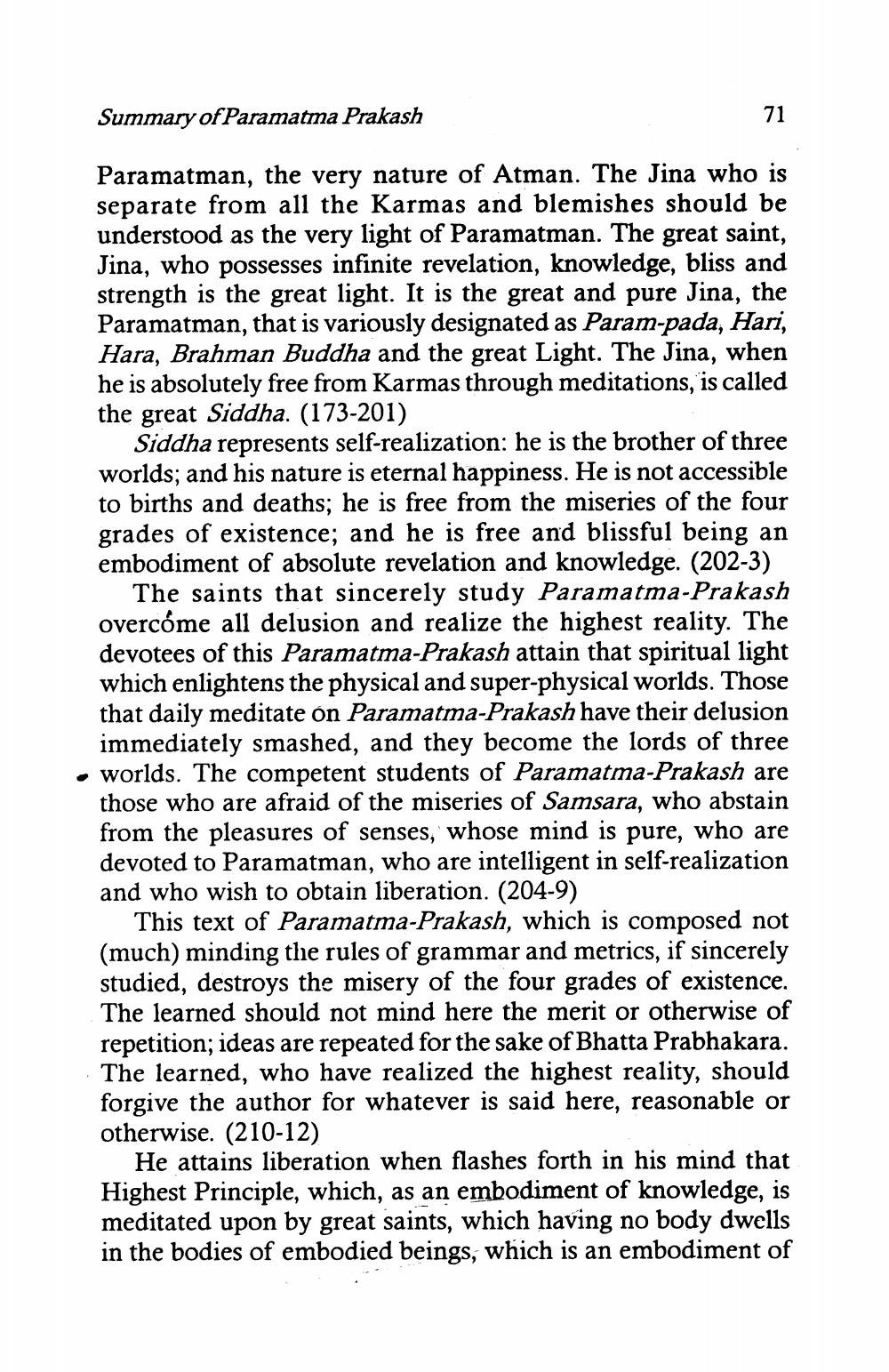________________
Summary of Paramatma Prakash
71
Paramatman, the very nature of Atman. The Jina who is separate from all the Karmas and blemishes should be understood as the very light of Paramatman. The great saint, Jina, who possesses infinite revelation, knowledge, bliss and strength is the great light. It is the great and pure Jina, the Paramatman, that is variously designated as Param-pada, Hari, Hara, Brahman Buddha and the great Light. The Jina, when he is absolutely free from Karmas through meditations, is called the great Siddha. (173-201)
Siddha represents self-realization: he is the brother of three worlds; and his nature is eternal happiness. He is not accessible to births and deaths; he is free from the miseries of the four grades of existence; and he is free and blissful being an embodiment of absolute revelation and knowledge. (202-3)
The saints that sincerely study Paramatma-Prakash overcome all delusion and realize the highest reality. The devotees of this Paramatma-Prakash attain that spiritual light which enlightens the physical and super-physical worlds. Those that daily meditate on Paramatma-Prakash have their delusion
immediately smashed, and they become the lords of three • worlds. The competent students of Paramatma-Prakash are
those who are afraid of the miseries of Samsara, who abstain from the pleasures of senses, whose mind is pure, who are devoted to Paramatman, who are intelligent in self-realization and who wish to obtain liberation. (204-9)
This text of Paramatma-Prakash, which is composed not (much) minding the rules of grammar and metrics, if sincerely studied, destroys the misery of the four grades of existence. The learned should not mind here the merit or otherwise of repetition; ideas are repeated for the sake of Bhatta Prabhakara. The learned, who have realized the highest reality, should forgive the author for whatever is said here, reasonable or otherwise. (210-12)
He attains liberation when flashes forth in his mind that Highest Principle, which, as an embodiment of knowledge, is meditated upon by great saints, which having no body dwells in the bodies of embodied beings, which is an embodiment of




